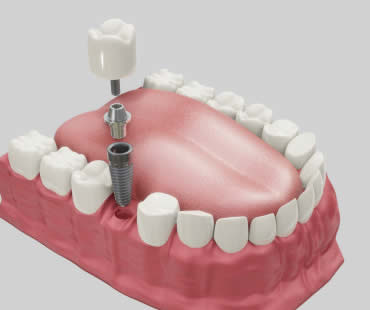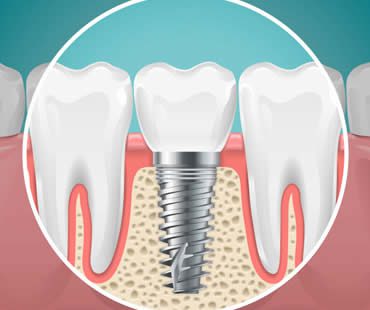
Sep 26, 2024 | Blog, Dental Information, Dental Topics 3
Having a teenager can be challenging. They have school work, multiple activities, and attitudes. This hectic time in life can also impact your teen’s dental health. Proper care and good oral hygiene will make sure that your teenager enjoys a lifetime of vibrant smiles.
• Encourage your teen to brush after each meal. Remind your son or daughter about the importance of flossing to remove plaque and promote gum health.
• Explain the consequences of not caring for your teeth, which can include bad breath, stains, and cavities.
• Make sure you stock up on the necessary supplies so that your teen has the right tools on hand. Purchase plenty of fluoride toothpaste, dental floss, and extra toothbrushes.
• Schedule regular checkups with the dentist. These appointments allow the dentist to assess your teen’s oral health and handle any problems right away.
• If your son or daughter has braces, get floss threaders from the orthodontist or buy them at the local drug store. Keep up with appointments for adjustments so that your teen’s treatment stays on track.
• For teens that play contact sports, including soccer, football, or volleyball, ask your dentist or orthodontist about a custom mouth guard. This oral appliance is designed to protect their teeth and mouth from potential injury.
• Limit your teen’s consumption of junk food by having health snacks like vegetables, fruits, and low fat dairy options readily available.
• Model good behavior. Showing that you believe oral health care matters will help your teen take your advice and warnings to heart.
Take the first step towards a confident smile. Contact our Bingham Farms dental office to schedule your consultation!

Sep 19, 2024 | Blog, Dental Topics 3, Implant Dentistry
Missing teeth make you unhappy because it’s more difficult to eat and speak without them, as well as leaving gaps in your smile. Luckily dental implants have come to the rescue in modern dentistry. These titanium posts are surgically inserted into your jawbone, where they fuse with the bone to become a permanent part of your body. An artificial tooth is later placed on top of this stable support to complete the restoration.
If your dentist says that you have healthy gums, strong bones, and good enough overall health to undergo the procedure, then dental implants may be a great choice for restoring your smile. If you’re considering this treatment, here are some benefits you can expect to receive:
- Natural appearance
- Durable enough to last a lifetime
- Very high success rate
- Improved speech
- Restored ability to eat naturally
- Improved self-esteem
- Security without concern for slipping
- Choice of materials for the crown such as porcelain or ceramic
- Ability to maintain good dental hygiene with normal brushing and flossing
The chances that you’ll be extremely happy with your dental implant is very good. Most patients rave about the results and their restored function and appearance. It’s easy to keep your implants for a lifetime with good oral hygiene and regular dental checkups. If you have a hole in your smile, ask your dentist if you are a good candidate to enjoy all of the benefits of dental implants.
Ready to transform your smile? Schedule your appointment today at our Bingham Farms dental office.

Sep 12, 2024 | Blog, Dental Topics 4, General Dentistry
Why You Should Never Skip Regular Dental Appointments
Welcome to the world of general dentistry – a branch of medicine that deals with the prevention, diagnosis, and treatment of oral health issues. General dentists are your primary care dental providers who offer a range of services such as routine check-ups, teeth cleaning, cavity filling, gum disease treatment, root canals, and more. Dental problems not only affect your oral health but also impact your overall well-being.
Poor oral health can lead to several chronic diseases such as heart diseases, stroke, diabetes, and respiratory infections. Therefore it is crucial to maintain good oral hygiene practices and visit a general dentist regularly.
The Significance of Regular Dental Appointments
Regular dental appointments are essential for maintaining optimal oral health. It is recommended to visit your dentist once every six months for routine check-ups and cleanings.
During these appointments, your dentist can detect any potential issues early on before they become major problems that require extensive treatment. Dentists also perform regular teeth cleanings that help remove plaque buildup and tartar from hard-to-reach areas in your mouth.
This helps prevent the formation of cavities and gum disease which can lead to tooth decay and tooth loss. Overall regular dental visits are an integral part of maintaining good oral health habits for life.
Benefits of Regular Dental Appointments
Preventative care for oral health issues
One of the main benefits of regular dental appointments is prevention. By scheduling regular check-ups, your dentist can identify and treat any oral health issues before they become major problems.
During your appointment, you will receive a thorough examination, including a cleaning and polishing to remove plaque and other buildup that can lead to tooth decay or gum disease. By taking preventative measures, you can avoid painful and costly treatments in the future.
Early detection and treatment of dental problems
Another key benefit of regular dental appointments is early detection. Your dentist is trained to identify dental problems before they become serious issues.
For example, if you have a small cavity that goes untreated, it can lead to further decay and eventually require a root canal or even extraction. However, if caught early enough, a simple filling may be all that is needed to prevent further damage.
Improved overall health and well-being
Regular dental appointments not only benefit your oral health but also improve your overall health and well-being. Studies have shown that there is a link between poor oral health and other medical conditions such as heart disease, diabetes, and stroke. By taking care of your teeth and gums through regular check-ups with your dentist, you are also taking care of your body as a whole.
Additionally, maintaining good oral hygiene has been linked to improved mental health as well as higher self-esteem levels. So don’t neglect those regular appointments – they’ll keep you healthy both inside and out!
Common Procedures During Dental Appointments
When you go to the dentist for a regular checkup, there are a few common procedures that you can expect to undergo. These procedures are designed to help your dentist keep your teeth healthy and identify any issues that may have developed since your last visit. Here are some of the most common procedures that you’ll experience during your appointment:
Teeth Cleaning and Polishing
The first thing that usually happens during a dental appointment is teeth cleaning and polishing. This procedure involves getting rid of any plaque or tartar buildup on your teeth that could cause tooth decay or gum disease if left untreated. Your dentist will use special tools to scrape away any buildup, followed by polishing your teeth with a gritty substance to remove surface stains.
X-Rays for Detecting Cavities or Other Issues
Your dentist may also take X-rays of your mouth during your checkup. X-rays allow dentists to see what’s going on beneath the surface of your teeth and gums, which can help them detect cavities, infections, and other issues before they become major problems. The process is quick and painless; you’ll just need to bite down on a special piece of film while the X-ray machine takes a picture of your mouth.
Oral Cancer Screenings
Many dentists will also perform an oral cancer screening as part of their routine checkups. This involves examining all areas of the mouth (including the gums, tongue, cheeks, and roof) for signs of cancerous growths or abnormalities.
Early detection is key when it comes to treating oral cancer effectively, so it’s important not to skip this part of the exam. All in all, these common procedures may seem routine but they are very important in maintaining good oral health.
They can help your dentist catch any problems early, before they have a chance to cause significant damage to your teeth and gums. So the next time you’re due for a checkup, be sure to go in with confidence, knowing that you’re taking an important step towards keeping your smile healthy and shining.
Consequences of Skipping Regular Dental Appointments
Increased risk of tooth decay, gum disease, and other oral health issues
Skipping regular dental appointments can lead to a buildup of plaque on your teeth, which can eventually cause tooth decay and gum disease. Plaque is a sticky film that forms on teeth and contains harmful bacteria that feeds on sugars in the food we eat. Over time, this bacteria can cause cavities or even lead to periodontal disease, which can result in tooth loss.
Higher costs for treatment in the long run
By skipping regular dental appointments, you may be putting yourself at risk for more serious oral health problems down the road. These problems often require more extensive treatment and therefore come with a higher price tag.
For example, a simple cavity that could have been detected early on during a routine dental exam may turn into something much more complicated if left untreated. This could mean needing a root canal or even an extraction – procedures that are much more expensive than simply filling a cavity.
Potential impact on overall health
It’s not just your oral health that suffers when you skip regular dental appointments – it could also have an impact on your overall health. Studies have shown that there is a link between poor oral health and certain systemic diseases such as heart disease, stroke, and diabetes. In fact, people with gum disease are twice as likely to develop heart disease as those who don’t have it.
Additionally, pregnant women with gum disease are at an increased risk for premature birth or having low birth weight babies. Skipping regular dental appointments is not worth the risk.
By neglecting your oral health you could be setting yourself up for serious problems down the road – both financially and physically. Don’t wait until it’s too late – make sure to schedule those routine check-ups with your dentist!
Addressing Common Concerns About Dental Appointments
Fear or Anxiety about Visiting the Dentist:
It’s common for people to feel anxious about visiting the dentist. However, avoiding dental appointments out of fear can have serious consequences for your oral health. Fortunately, there are several options available to help you feel more relaxed during your appointment.
One option is nitrous oxide, also known as laughing gas. This is a safe and effective way to calm anxiety and make you feel more comfortable during your dental procedure.
Discuss Options for Sedation or Relaxation Techniques:
If you experience severe anxiety or fear about visiting the dentist, there are other sedation techniques available that can help you relax during your procedure. Oral sedatives can be prescribed by your dentist and taken before your appointment to help ease any anxiety you may have. Another option is IV sedation, which involves administering medication directly into a vein to induce a state of deep relaxation.
Emphasize the Importance of Open Communication with Your Dentist:
One of the most important things you can do when visiting the dentist is communicate openly with them about any fears or concerns you may have. This will allow them to work with you to create a plan that addresses your specific needs and helps alleviate any anxiety or discomfort during your appointment.
They may also be able to provide tips on how to improve your oral health routine at home, which can further reduce the need for invasive dental procedures in the future. Overall, it’s important not to let fear or anxiety prevent you from getting regular dental care.
Visiting the dentist regularly can not only prevent serious oral health issues but also contribute significantly to overall health and well-being. By discussing concerns with your dentist and exploring options for relaxation techniques like nitrous oxide or sedatives, anyone struggling with dental anxiety can get back on track to a healthy smile.
Don’t Skip Your Next Dental Appointment
Regular dental appointments are crucial for maintaining good oral and overall health. They help prevent small problems from becoming big ones and can even help detect non-dental related issues that can have serious consequences on one’s overall health. By staying on top of your dental health, you can save money in the long run and enjoy a brighter, healthier smile.
You’re Not Alone
If you’re someone who experiences anxiety or fear about visiting the dentist, know that you’re not alone. Many people feel this way, but there are options available to help make dental appointments more comfortable. Talk to your dentist about your concerns and work together to find a solution that works for you.
A Bright Future for Your Oral Health
By prioritizing regular dental appointments, you’re investing in a healthy future for yourself. You’ll be able to enjoy all the benefits of strong teeth and healthy gums without worrying about painful or costly treatments down the line.
So why wait? Schedule your next appointment today and take the first step towards a brighter future for your oral health!
Do not let another day go by without taking care of your dental needs. Request an appointment now at our Bingham Farms dental office!

Sep 5, 2024 | Blog, Dental Topics 3, Implant Dentistry
If you have lost a tooth due to injury, disease, or decay, you may be wondering what your options are for restoration. The best, long-term solution for restoring your single missing tooth is a dental implant fitted with a crown. A single tooth dental implant replaces both the natural tooth, as well as the tooth’s root.
A dental implant allows you to replace a missing tooth without altering the state of surrounding teeth. Common alternative treatments, such as the placement of a tooth-supported bridge, require neighboring teeth to be filed or cut down into peg shapes to support the appliance. Those compromised teeth are more susceptible to decay and bone loss. However, dental implants do not require such alterations, thus preserving the healthy teeth. The placement of an implant involves placing a small titanium post into the jawbone, which provides an anchor for the placement of the implant. This artificial “root” attaches to the bone and gums to become a base for a crown.
You may be tempted to avoid restoring one missing tooth; however, leaving it untreated can result in bone loss, altered chewing capability, and an overall unappealing appearance to your smile. For these reasons, it would be wise to consider an individual dental implant to replace your single missing tooth. With proper oral hygiene and regular dental care, single tooth implants can last as long as 25 years. Schedule a consultation with your dental professional to determine if you are a good candidate for a single tooth dental implant to replace your missing tooth and restore your healthy smile.
Take the first step towards a confident smile. Contact our Bingham Farms dental office to schedule your consultation!

Aug 29, 2024 | Blog, Cosmetic Dentistry, Dental Topics 3
If you look in the mirror and wish you had a more attractive smile, porcelain veneers may provide the answer you are looking for to update your image. Made from fine dental porcelain, veneers can cover imperfections and transform your appearance. With veneers, you can cover stains, close gaps, and produce uniformity. Depending on your case, you may choose from custom veneers or minimal preparation options.
Before beginning any treatment, schedule a consultation with a skilled cosmetic dentist. At this visit, explain your desires in detail to your doctor. Some people even bring examples of smiles that they like. Your dentist will combine this information with a complete examination to develop a customized plan for your new smile.
Traditional Veneers
Handcrafted to fit your specific smile, traditional porcelain veneers can be created to complement your facial features, neighboring teeth, and personality. For traditional veneers, your doctor will prepare the teeth by removing a thin layer of enamel and then take impressions of your teeth. Your dentist will send this information to a trained ceramist, who will generate your restorations. While you wait, some dentist will place temporary veneers, giving you a chance to try out your new look. Once the permanent veneers arrive from the lab, you will return for final placement.
Minimal-Prep Veneers
Marketed through brands like Durathin or Lumineers, minimal-prep veneers are ultra-thin shells of porcelain that are bonded to your front teeth. With minimal-prep options, little enamel removal is necessary and usually local anesthetic is unnecessary. Reversing minimal prep veneers is also possible if you change your mind at a later time. Because they can look unnatural or bulky in certain cases, not all individuals make good candidates for minimal-prep veneers.
Ready to transform your smile? Schedule your appointment today at our Bingham Farms dental office.

Aug 22, 2024 | Blog, Dental Information, Dental Topics 4
Importance of Dental Health During Pregnancy
Good oral hygiene plays a crucial role in maintaining overall health and well-being. During pregnancy, hormonal changes in the body can lead to an increased risk of several dental problems such as gum disease, tooth decay, and tooth erosion. In addition to these issues, poor dental health during pregnancy has been linked to adverse pregnancy outcomes such as premature birth and low birth weight.
Brief Overview of Common Dental Concerns During Pregnancy
There are several unique dental concerns that pregnant women may face:
- Gingivitis: hormonal changes in the body cause an increase in blood flow to gums making them more sensitive and prone to inflammation which leads to gingivitis
- Tooth decay: morning sickness causes acid reflux which leads to enamel erosion on teeth
- Pregnancy tumors: overgrowth or swellings occur more often on gum tissue due to hormonal changes
- Dry mouth: pregnant women may experience dry mouth due to hormonal fluctuations which can lead them vulnerable for cavities and gum disease
- Cavities: pregnant women may develop cavities if they consume more sugary foods or experience morning sickness
Although these dental concerns can be concerning, they can be prevented with proper oral hygiene and regular dental check-ups. Next, we will delve into the most common dental problems experienced by pregnant women: hormonal changes and gum disease.
Hormonal Changes and Gum Disease
Pregnancy is a unique phase of life when a woman’s body undergoes many hormonal changes. These changes can increase the likelihood of developing gum disease, also known as periodontal disease.
The hormone progesterone, which increases during pregnancy, causes an exaggerated response to plaque and bacteria in the mouth. This can lead to red, swollen and bleeding gums.
Symptoms and signs of gum disease in pregnant women
Early signs of gum disease include swollen gums that bleed easily when brushing or flossing. As the disease progresses, pockets form between the teeth and gums and may cause bad breath or a bad taste in the mouth. In advanced stages, teeth may become loose or fall out.
Prevention and treatment options for gum disease during pregnancy
Prevention is always better than cure, so it’s important to maintain good oral hygiene practices during pregnancy such as brushing twice daily with fluoride toothpaste and flossing regularly. Regular dental check-ups with a dentist are also crucial as they can identify any potential issues early on.
Treatment for gum disease during pregnancy may include deep cleaning procedures such as scaling and root planing (which removes plaque build-up below the gum line) or more extensive treatment if needed after delivery. If you suspect you have gum disease while pregnant, you should contact your dentist right away to schedule an appointment.
Morning Sickness and Tooth Erosion
Morning sickness is a common symptom experienced by many pregnant women. This condition is characterized by nausea and vomiting, particularly during the first trimester of pregnancy. Unfortunately, the acidic vomit produced during morning sickness can have a negative impact on dental health.
The acid present in vomit can cause tooth erosion, which is the wearing away of the enamel on teeth. Tooth erosion can cause sensitivity and pain while eating or drinking.
Tips for Preventing Tooth Erosion During Pregnancy
Preventing tooth erosion during pregnancy starts with good dental hygiene practices. Pregnant women should brush their teeth twice daily for at least two minutes with fluoride toothpaste. They should also floss daily to remove food particles that may be stuck between teeth and gums.
Additionally, pregnant women should rinse their mouth with water after vomiting to help neutralize any stomach acid left in the mouth. Pregnant women can also take steps to reduce morning sickness symptoms, which will ultimately help prevent tooth erosion.
Eating small meals throughout the day instead of large meals can reduce nausea and vomiting episodes. Drinking plenty of fluids, such as water or herbal tea, can also help reduce morning sickness symptoms.
Treatment Options for Tooth Erosion in Pregnant Women
If tooth erosion does occur during pregnancy, treatment options will depend on the severity of the condition. If caught early enough, enamel remineralization treatments may be used to restore some of the lost enamel on teeth.
In more severe cases, restorative dentistry procedures such as fillings or crowns may be necessary to repair damaged teeth. However, it’s important for pregnant women to consult with their dentist regarding any dental procedures they may need as some treatments are not recommended during pregnancy.
Pregnancy Tumors
Definition and Explanation of Pregnancy Tumors
Pregnancy tumors, also known as pyogenic granulomas, are non-cancerous growths that can develop on the gums during pregnancy. These growths are typically localized, meaning they only affect one area of the gums, and can range in size from a few millimeters to over a centimeter. They are usually painless, although some women may experience discomfort or bleeding when brushing their teeth.
Symptoms, Causes, and Risk Factors Associated with Pregnancy Tumors
The exact cause of pregnancy tumors is unknown. However, hormonal changes during pregnancy are believed to play a role in their development.
Specifically, an increase in estrogen and progesterone levels can cause an overgrowth of blood vessels in the gums. This overgrowth can then lead to the formation of pregnancy tumors.
While pregnancy tumors can develop in any woman who is pregnant, some women may be at a higher risk than others. For example, women who have poor dental hygiene or pre-existing gum disease may be more likely to develop these growths.
The symptoms of pregnancy tumors include red or purple bumps on the gums that bleed easily when touched or brushed. Some women may also experience pain or discomfort in the affected area.
Treatment Options for Pregnancy Tumors
In most cases, pregnancy tumors do not require treatment and will go away on their own after delivery. However, some women may choose to have them removed if they cause discomfort or embarrassment. If treatment is necessary, there are several options available.
One common treatment is surgical removal of the tumor under local anesthesia. Laser therapy may also be used to remove the growth while minimizing bleeding and discomfort.
Good oral hygiene practices such as regular brushing and flossing can help prevent the development of pregnancy tumors during pregnancy. Additionally, seeing a dentist for regular checkups and cleanings can help identify and treat any dental concerns before they become more serious issues.
Medications During Pregnancy
The Impact of Medications on Dental Health
Pregnant women are often prescribed medications to manage various health issues, but some medications can affect dental health. For example, certain antibiotics like tetracycline can cause tooth discoloration in developing fetuses.
Additionally, some over-the-counter pain relievers like aspirin and ibuprofen are not recommended during pregnancy because they can increase the risk of bleeding. Therefore, pregnant women should always inform their dentists and doctors about any medications they are taking to ensure that they receive the appropriate dental care.
Safe Medications for Pregnant Women
There are many safe options for pregnant women who need dental treatment. For example, topical fluoride treatments and local anesthesia are generally considered safe during pregnancy.
Antibiotics like penicillin and erythromycin are also generally safe for use during pregnancy. However, it is important to remember that every medication has risks associated with it, so dentists and doctors must weigh the benefits against any potential adverse effects.
Precautions when Taking Medication
While certain medications may be deemed safe during pregnancy, it is always important to take precautions when taking any medication. Pregnant women should always follow their doctors’ instructions carefully and only take medications as prescribed. They should also avoid self-medicating or taking medication without consulting a healthcare provider first.
Furthermore, pregnant women should inform their dentists or doctors if they experience any side effects from their medication or if they have any concerns about their treatment plan. Overall, while there may be some risks associated with taking medication during pregnancy as it affects dental health; seeking professional advice from healthcare providers can help minimize these risks and promote healthy outcomes for both mother and baby.
Nutrition During Pregnancy And Its Effect On Dental Health
Importance of nutrition in maintaining good oral health
A healthy diet is essential for maintaining good oral health during pregnancy. It is important to eat a well-balanced diet that includes a variety of fruits, vegetables, whole grains, lean proteins, and dairy products.
Calcium and vitamin D are particularly important for maintaining strong teeth and bones. Pregnant women should also drink plenty of water to stay hydrated.
Listing out foods that promote good oral health
Foods that promote good oral health include those that are rich in calcium and vitamin D, such as dairy products (milk, cheese, yogurt), leafy greens (kale, spinach), almonds, and salmon. Foods high in vitamin C (citrus fruits, strawberries) can also help strengthen gums and prevent gum disease. Crunchy fruits and vegetables like apples and carrots can help clean teeth naturally.
Foods That Should Be Avoided
During pregnancy it’s best to avoid sugary foods which contribute to tooth decay. Soft drinks should be avoided as they contain high levels of sugar which can harm the teeth already weakened by hormonal changes during pregnancy. Eating between meals or snacking all day leads to increased exposure to acid which is not good for the teeth either.
Eating a balanced diet during pregnancy is essential for overall health including dental hygiene.
Proper nutrition helps ensure the growth of a healthy baby while decreasing risks associated with premature birth or low birth weight. By consuming enough vitamins & minerals from quality food options pregnant women will maintain strong teeth while reducing their risk of gum disease or tooth decay even with hormonal fluctuations during pregnancy.
Are dental issues holding you back? Take control of your oral health by booking an appointment with our experienced team at our Bingham Farms dental office.






